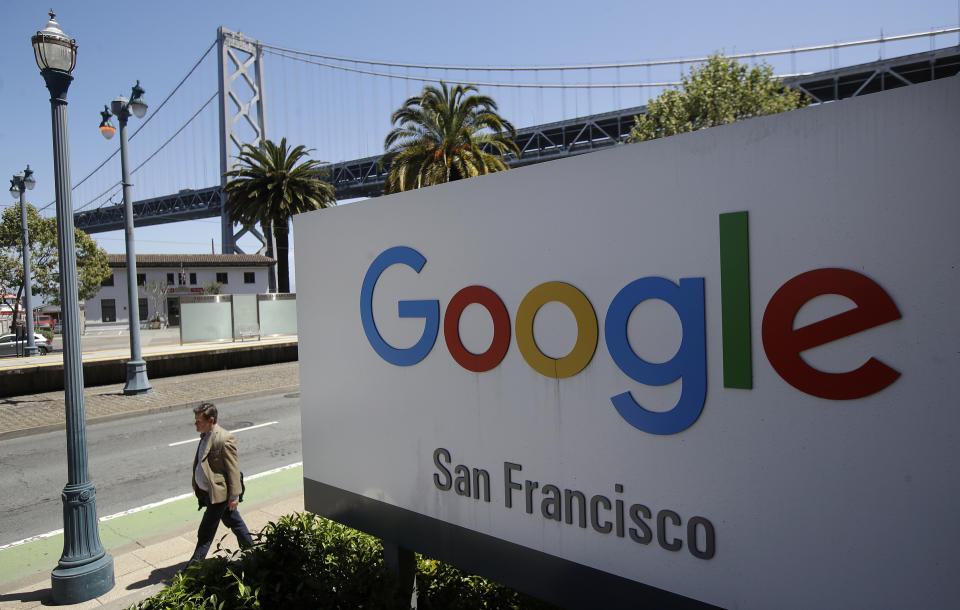We need more monopolies like Google
I traveled to Europe earlier this year, and used Google maps to get around in a rented car. Google Translate helped me ask basic questions in the local language, while Google’s search engine helped me research restaurants. All of that was free.
My phone company, however, charged me $10 per day for the international service I needed to access Google.
Nobody is accusing the phone company of gouging consumers or engaging in anticompetitive behavior. But politicians are swarming Google, with attorneys general for 50 states and territories announcing an antitrust investigation of the tech giant on Sept. 9. The state AGs will look into Google’s dominance of advertising on the Internet, and probe whether it keeps other players out of the business.
Democratic Sen. Elizabeth Warren, who’s running for president, wants to break up Google, along with Amazon and Facebook. She complains that Google has built too thorough a business by acquiring mapping service Waze, thermostat maker Nest and ad firm DoubleClick. She’d force the company to sell off its core search business and then regulate it like a heavily governed utility.

President Trump hates Google because he feels, without evidence, that it besmirches conservative politicians like himself through skewed search results. The highly politicized antitrust division of Trump’s Justice Department is now investigating the firm, on top of the other investigations. Shares of Alphabet (GOOGL), Google’s parent firm, are down nearly 8% since April 29, when antitrust rumors began to pick up steam.
A brand consumers love
If Google is an abusive monopoly, then we need more abusive monopolies! Consumers clearly love being ripped off by Google, ranking it consistently near the top among consumer brands. Google ranks second among Morning Consult’s most-loved brands, for instance. And it ranks third out of nearly 900 companies on Just Capital’s index of “most just” companies.
Consumers don’t seem to have a problem with Google’s business model, but regulators sure do. Google offers free services because it gets user data in return for those services. The firm uses that data to target ads based on users’ interests, which is a juggernaut business that has made Google a powerhouse.
If Google or any online firm abuses uses data, it should pay a price. And it has. Federal and state regulators recently fined Google $107 million for improperly tracking kids’ activity on the Internet. Earlier this year, European authorities fined Google $57 million for not properly disclosing how it organizes user data.
Regulators also need to update their own laws and rules to better reflect the realities of the digital economy. The laws governing hostile speech on the Internet, for instance, went into effect during the Internet’s early days, way before social media networks gave haters a public forum for posting noxious content. That needs to be updated.
Turning a search engine into a utility
But if you’re a politician or regulator who earnestly wants to deploy limited resources to help consumers the most, attacking Google shouldn’t even make the list. The Just Capital rankings actually provide some choice hints about the worst companies in America. Equifax, Fifth Third Bancorp, Marathon Petroleum, Western Union and Wells Fargo are lowest-rated for treatment of customers. For treatment of workers, the worst scores go to Dollar Tree, Dollar General, Flowers Foods, the Extended Stay hotel chain and Amerco, a retailer.

Politicians who do want to break up Google might want to ask its users a few questions before it’s too late. If given a choice, would they prefer to retain all their personal data and pay a fee for using all of Google’s services? Or are they fine getting everything for free, as long as Google can track their behavior? On other services offering this sort of choice, more than 90% of consumers typically choose the free version and hand over the data. Is it worth pissing off most of everybody by turning Google and other search engines into utilities people have to pay for?
It may be time to put an accurate price on people’s personal data and make sure they can choose what happens to it. No argument there. But the 50 AGs investigating Google may try to apply the litigation model used against tobacco companies in the 1990s, to recoup billions of dollars in health care costs for problems related to smoking. Does anybody really think using Google is as bad as smoking? Is YouTube the Joe Camel of social media?
There are legitimate problems with the power Big Tech has accumulated. Congress has the ability to pass laws to address such problems, which is its job. But politicians can also do more harm than good when they think they know better than consumers. You can look it up on Google. For free.
Rick Newman is the author of four books, including “Rebounders: How Winners Pivot from Setback to Success.” Follow him on Twitter: @rickjnewman
Confidential tip line: [email protected]. Encrypted communication available. Click here to get Rick’s stories by email.
Read more:
Democrats are attacking the wrong companies
Trump’s biggest gamble yet: tax hikes before an election
The Trump Recession is starting to take shape
Obama was better for your 401(k) than Trump has been
Democrats are blowing it on climate change
Read the latest financial and business news from Yahoo Finance
Follow Yahoo Finance on Twitter, Facebook, Instagram, Flipboard, SmartNews, LinkedIn, YouTube, and reddit.


